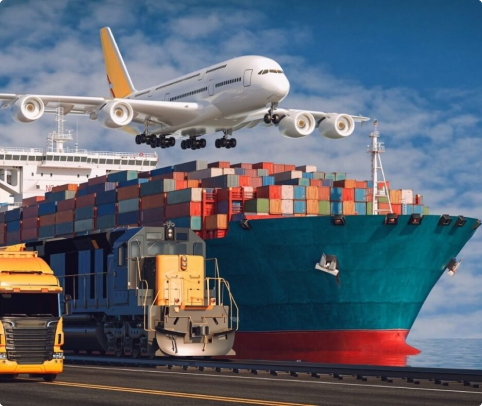MIAMI — Boeing updated its prediction from last summer that the demand for air cargo will quadruple over the next 20 years, driving a 60% increase in the world’s fleet of freighters on Wednesday.
The conclusions drawn in Boeing’s more comprehensive commercial market perspective were largely unaltered from the biennial World Air Cargo Forecast, while some additional information was provided.
According to the estimate, through the year 2041, airfreight volumes would grow at a compound annual rate of 4.1% due to anticipated expansions in international trade, industrial output, and e-commerce.
To fulfill expected quantities, that corresponds to almost 2,800 production and conversion freighters, including 940 widebody models manufactured in factories. A little over half of the new aircraft will support increased shipping demand while the other half will replace older, less effective aircraft. Factory-built freighters will make up a third of deliveries, with the remaining deliveries being made by old passenger planes that have been modified to carry big containers in the main cabin.
Over the next two decades, the global fleet of small, medium, and large cargo planes will increase by 2.7% year, or 1,300 units, to more than 3,600 jets, according to Boeing (NYSE: BA). 40% of all new freighters will be delivered to the Asia-Pacific area.
If fuel efficiency and productivity weren’t improving, there would be a higher need for aircraft.

Boeing’s cargo forecast assumes global trade growth continues at an annual rate of 2.8%. Other influences on freighter demand include:
- The inexorable growth in e-commerce and express networks to move packages.
- New market entrants such as passenger airlines (Air Canada, WestJet and Sun Country) and ocean carriers (Maersk, CMA CGM and Mediterranean Shipping Co.) starting or growing cargo airlines to diversify their logistics offerings with a faster-service option.
- E-commerce platforms like Mercado Libre in South America and Alibaba’s logistics arm establishing private airlines, using airline partners such as Brazil’s Gol, to expedite B2C and B2B deliveries.
- Better competitiveness with ocean shipping as container lines become more disciplined managing capacity to maintain higher rates.
Hulst said Boeing has counted about 40 new cargo operators in the past two years. The report said 90% of air cargo revenues for the entire industry are generated by airlines that fly at least some dedicated freighters, meaning airlines with combined passenger and freighter fleets or all-cargo operators, which help explain some of the renewed interest in freighter investments.
The report also highlighted other market changes that can tip shipping needs toward the air mode. Since 2018, there has been a 23% increase in U.S. domestic air tonnage against only a 1% increase in trucking, which officials explained as a temporary phenomenon due to the e-commerce explosion, a shortage of truck drivers and supply chain disruptions during the pandemic.
And since 2019 the amount of industrial machinery transported from the U.S. to Chile has quadrupled to support mining of lithium for electric batteries.

Data from Boeing shows that more than half the fleet of large freighters is more than 20 years old and will need to be replaced by more modern planes in the coming years. During the COVID crisis many cargo planes that never would have flown again under normal circumstances were brought out of storage in response to a shortage of airlift caused by the pulldown of passenger flights. How much longer many of those planes can remain in service with the high cost of jet fuel and lower rates remains to be seen.
That means that by the end of this decade, more than 300 jets with a payload of at least 80 tons will either need to be replaced.
The final 747-8 produced by Boeing will be in the first quarter of 2023. Construction of the huge 777 freighter and medium widebody 767 will continue until 2027, when new international standards demanding cleaner engine types take effect. The supplier revealed on Tuesday that Emirates has bought five 777 freight planes.
Compared to a more equal distribution before the pandemic, Hulst predicted that freighters will transport more than 50% of the cargo.
The Boeing 777-8 is slated to replace the 777 and 747 and go into service in late 2027. Recently, rival Airbus unveiled the A350 cargo to compete with the 777-8. The 777-8 has received 43 solid orders from four customers, not including the roughly 16 options, according to aviation data company Cirium. 31 orders have been placed for the A350 so far.
Through October 2022, Boeing has sold nearly 80 production freighters, setting a record for both new and conversion freighter sales.

UNI GLOBALTRANS Vietnam
Our company has a team of more than 10 years of experience in providing freight rates and supporting customs declaration processes. and many other logistics services.
Let UNI-GLOBAL help you
Contact a consultantSECURITY & SAFETY
Confidentiality of customer information, committed to safely transporting goods to bring the best services.
READY SPEED
We always ensure timely and accurate delivery time and speed for customers.
REASONABLE PRICE
The most competitive rates in the market, offering cost-effective solutions for businesses.
SUPPORT 24/7
With a team of professional customer care and support. We are always there to assist you as quickly as possible.

